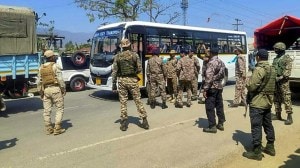Poor sport
Threatening to keep Sri Lankan athletes out,Jayalalithaa fuels a politics of competitive hurt
Threatening to keep Sri Lankan athletes out,Jayalalithaa fuels a politics of competitive hurt
Days after grim photographs of slain LTTE leader V. Prabhakarans son were released in the public domain,Tamil Nadu Chief Minister J. Jayalalithaa declared the state would not host the Asian Athletics Championship in July. Her evident aim to keep Sri Lankan athletes,out of Tamil Nadu. The photographs,which suggest that the 12-year-old was killed by the Sri Lankan army in the last days of the civil war,have touched off ripples of shock. At the UNHRC meet next month,at the Commonwealth meet to be hosted by Colombo this year,and through other institutional channels,pressure is likely to be mounted on the Sri Lankan government to bring to account those guilty of human rights abuses against ethnic Tamils. But Jayalalithaas ham-handed tactics speak of an inability to distinguish between a countrys government and its people.
This is not the first time that Sri Lankas sportspersons,cultural representatives and even pilgrims have had to bear the brunt of Jayalalithaas ire. Last September,football teams from the country were ordered out of Chennai. Protests against the plight of Sri Lankan Tamils inevitably feed into the internal politics of the state,and each party rushes to outdo the other. The DMK had already reacted to the photographs,threatening to pull out of the UPA if it didnt toughen its stand on Sri Lanka. Jayalalithaa might have felt compelled to respond with a suitably strong gesture. But by joining in this politics of competitive hurt,the CM has ended up looking churlish.
Extracting accountability from Sri Lanka for its alleged actions in the 2009 civil war is not merely Tamil Nadus concern. India has voted against Sri Lanka at the UNHRC,and also offered to assist the process of rehabilitation and reconstruction. India and the international community continue to exert pressure on Sri Lankas government,to strengthen reconciliation efforts and ensure that power is shared with ethnic Tamils and the provinces. Diplomacy must be separated,however,from the vital currents of personal,cultural and sporting interactions between countries. Whether it is sending Pakistani hockey players home after an incident at the LoC or warding off Sri Lankas athletes,intemperate belligerence can only damage the delicate process of dialogue between governments and the pursuit of larger goals,in this case,justice for thousands killed or displaced in the brutal civil war.
- 01
- 02
- 03
- 04
- 05






























